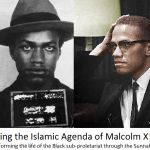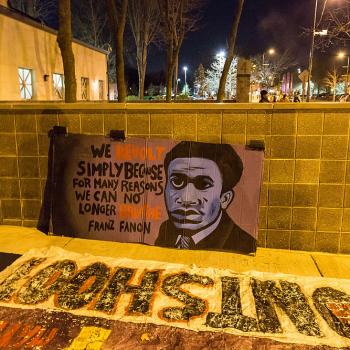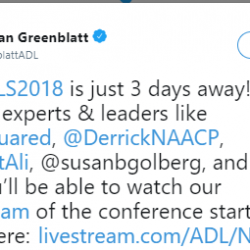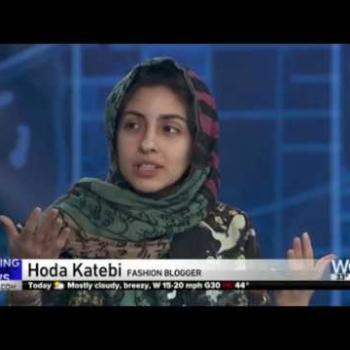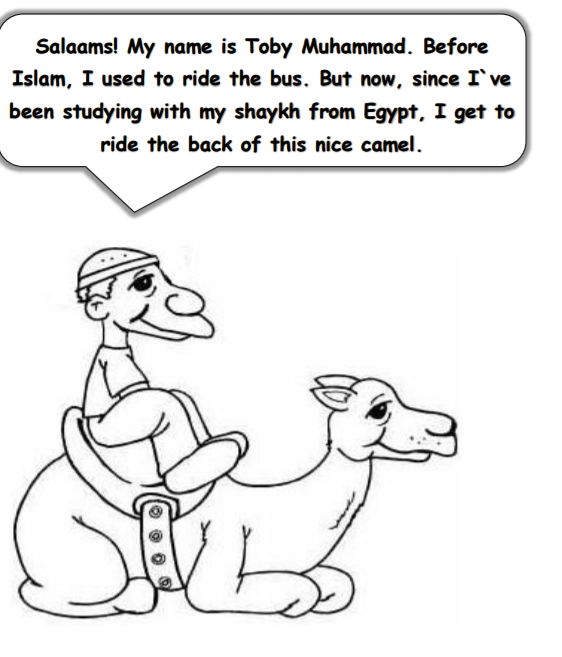
Editorial Note: (This is a guest post from brother Hameed of Muslim Empowerment Institute. This blog post is excerpted from a chapter of the forthcoming book written by Brother Hameed titled,“Toby Muhammad: From The Back of the Bus To The Back Of the Camel.)
The Nation of Islam was not only the predecessor of Islam in the Black American community, but by and large, they were also a forbearer of Black consciousness and liberation theology among Black Americans. Black empowerment, Black nationalism, the knowledge of self and healthy eating practices were all a part of the Nation’s agenda which still influences black people to this day. However in the present, Black American Sunni Muslims have found themselves in a very complicated conundrum. Gone are the days where Islam with minor exceptions can be seen as being influential in resolving the social ills in the Black American community. Despite sincere objectives to embrace an orthodox expression of Islam, drastic transformations in the consciousness of many Black Muslims who sought religious education from immigrant Muslims began to occur.
For them, Islam began to be less about racial consciousness, ethnic pride, and Black liberation, but it was more of an imperative to adopt the culture and customs of immigrant Muslims and acquire trivial Islamic knowledge, all the while self-excommunicating oneself from the Black American community under the guise of seeking authenticity. Many of the hereditary pathologies passed down from slavery that the Nation of Islam toiled earnestly to eradicate was unearthed through the vehicle of the new immigrant influenced understanding of Islam.
Dr. Sherman Jackson states in his seminal work, Islam and the Blackamerican: Looking towards the Third Resurrection
: “…the most lamentable development was the seemingly reversed effect that Islam was exerting on the pathologies and dysfunctionalities of the urban ghetto. Beyond the explicitly religious vices, for example, illicit sex or alcohol consumption, Islam was fast losing its significance as a fortifier of indigenous constructions of such values as manly pride, fiscal responsibility, or civic consciousness, Whereas under the “Islam” of the Honorable Elijah Muhammad, education, work, and community-uplift were synonymous with Black Muslim, Sunni Islam was increasingly being invoked as a reason not to work (for the infidel), not to be educated (in the infidel’s institutions), and not to be involved in the (infidel) community,
The question of why did this occur is mystifying. Did the immersion of Islamic knowledge lead to this? If so, how did learning religious knowledge lead to Toby’s unshakable secular impairment. One would expect learning Islamic knowledge would have only a positive effect in facilitating Islamic practice. For Toby, not only was he immersed in Islamic knowledge, but he was asphyxiated by it. A “self-lynching” occurred due to knowledge accumulation which had little to no impact in alleviating the social ills of black people in America. With the emphasis of learning the different creeds of countless Islamic scholars from the past, the alleged deviations of countless scholars of the present, and the futile attempts of reviving the bygone lifestyles of societies that have been non-existent for several hundred years, the priority of solving social problems was pushed to the back-burner.
There was no time to focus on the present school to prison pipeline, unemployment, educational, economic, health and wealth disparities, black on black homicide, the frequent shootings of unarmed black men by police, political disenfranchisement, and the list goes on. Perhaps, the reason for the present decline in black people converting to Islam is possibly due to the inability of Black Sunni Muslims to prioritize any of the aforementioned. It appears that many non-Muslim blacks are so bogged down with social ills to the point where there’s no mental capacity for God, especially if the religious instruction is calling for people to forget about their day to day realities and focus on the hereafter instead.
When Black Americans in large quantities began to get access to “orthodox Islam,” the expected notion was in order to get the “proper” Islamic knowledge; one had to seek it from a foreign authority figure in the Muslim world, more specifically the Arab speaking world in order to get the “new master’s” interpretation of Islam. One could argue this was the presumed expectation during the late 1970s in America due to the paucity of Black Americans who were proficient in the Arabic language as well as the Islamic sciences. Even though this was factual in the 1970s, this is not the case in today’s time. Despite only a very small fraction of blacks have actually traveled to the Muslim world in order to study Islam in comparison to the masses, many of them returned home heralding the names of mostly Arab scholars who became the paternalistic authority figures of Islam to Black Americans.
For a Black Muslim to be accepted as an authentic Muslim, his name had to be attached to the scholar’s name which would endorse his knowledge as being legitimate. For example, Toby Muhammad would be interrogated by other Toby Muhammad Muslims about the specific country where he studied in and from whom did he receive his knowledge. If the country and or the scholar are acceptable to the person, then this would legitimate his reliability as an Islamic authority figure, even if the person never visited the country or even met the scholar.
Thus, many Black Muslims began to validate strangers they never met before based on aggrandized tales from Toby Muhammad, therefore leading to the creation of more Toby Muhammad Muslims. Toby would also take on the surname of the scholar to present to others that he is a student or follower of him. During slavery, since black slaves were only considered to be property, the slave master would give his slaves his last name so others would know whom he belonged to.
This is quite similar to Toby Muhammad taking on the name of his shaykh, so everyone would know who he belonged to or in this case, to whom he is a devotee. To be fair, the scholar from overseas did not mandate him to take on his surname, but since Toby is used to having a white American slave master, it should not be a surprise that under a new theology, in order for him to function, he must take on the name of his new master in order for him to be considered credible.
The overseas scholar is deemed to be authoritative and trustworthy, while an indigenous American scholar not connected to someone overseas is seen as ignorant and incredulous. If a person is ill and is prescribed medication to treat an illness by a physician, the medication could potentially produce deleterious side effects. Most sick people never investigate the possible side effects. Their only focus is getting well regardless of the possible consequences of taking the medication.
There are always benefits and risks to any medication hence, a side effect of the medication intended to treat an illness that came along with Black Muslims adopting the Immigrant expression of Islam was the redefining of what it means to be Muslim. Becoming Muslim became wholly an external phenomenon; clothing, beards, Arabic names, and Islamic phrases. For Toby, Islam is a facet of his personality constantly at odds with his “blackness” in a never ending battle for supremacy. For the Black American Sunni, religiously endorsed cultural apostasy became an unwritten pillar of Islam.
The level of dedication shared by the former Nation of Islam under the Honorable Elijah Muhammad is of no comparison to Toby Muhammad’s lethargy for so-called Orthodox Islam.
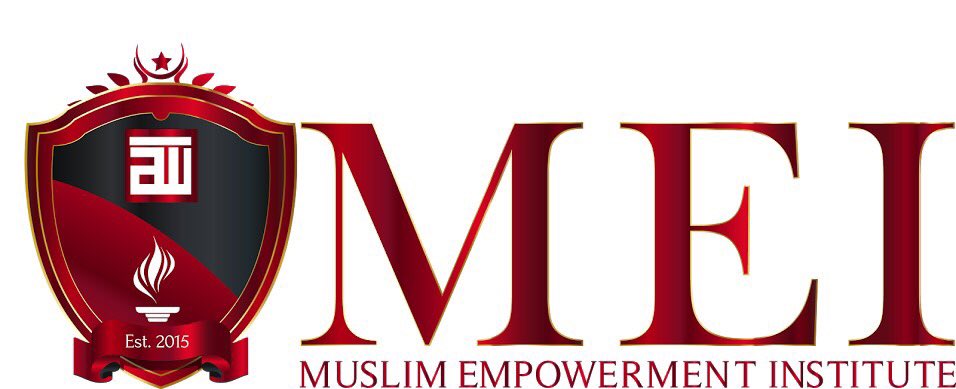
The 3 rd Resurrection of Islam in the Black American Community begins with YOU…


